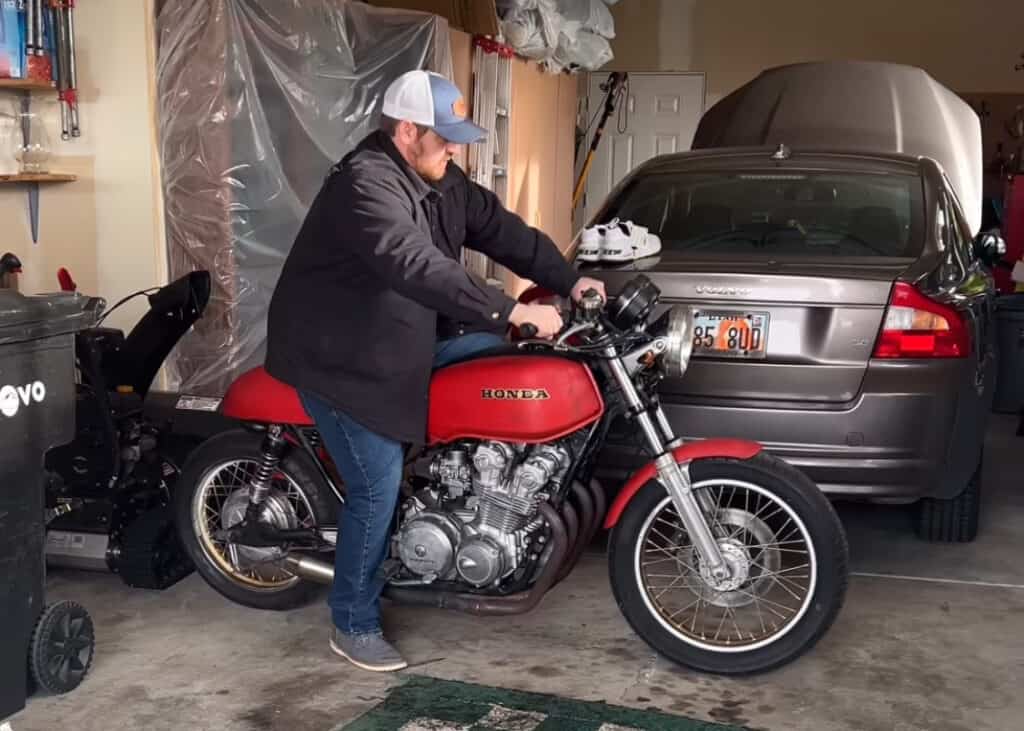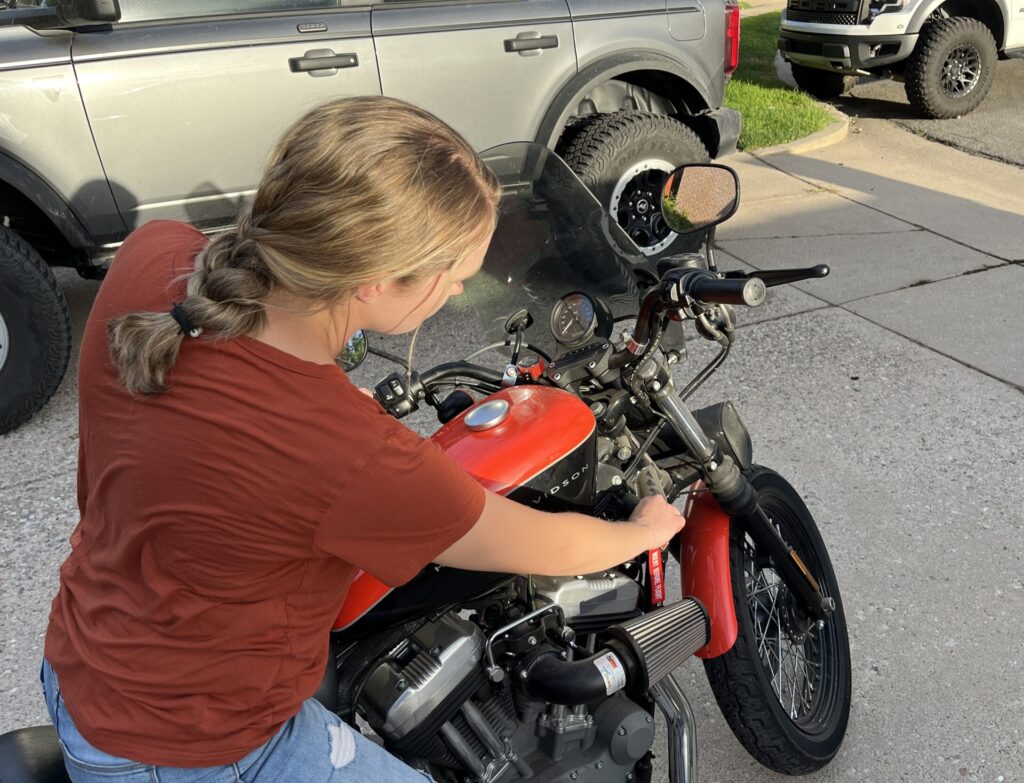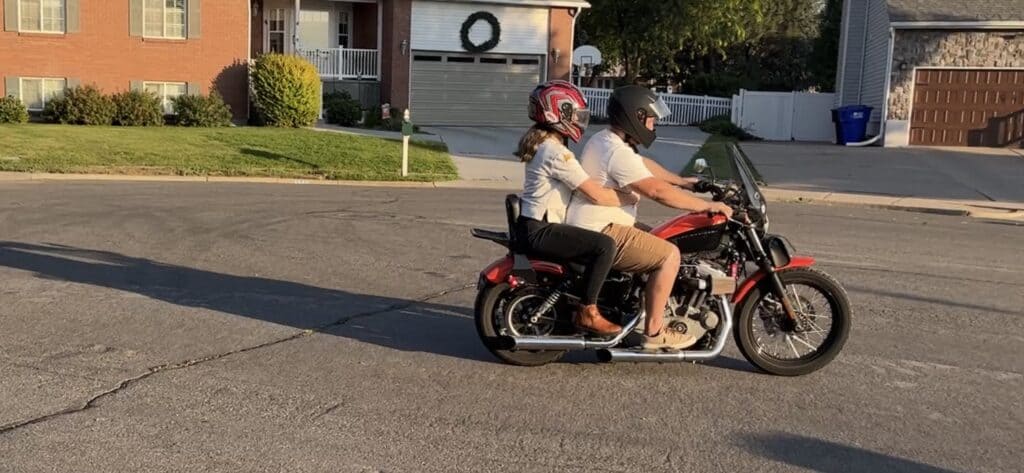
Whether or not you’ve operated a motorcycle, there’s no doubt that it’s an enjoyable hobby to pursue. Being able to ride a motorcycle provides a sense of freedom that no other type of vehicle offers.
However, there are certain rules that should be kept when riding a motorcycle. Pursuing such an activity does require the right licensing and expertise in order to stay safe and legal on the roads.
Can you ride a motorcycle with a regular driver’s license? You cannot legally ride a motorcycle with just a regular driver’s license. You will need to obtain a separate motorcycle permit or license in order to legally operate a motorcycle. Riding a motorcycle is different from driving a car which is why additional training is required.
A lot of people mistakenly think that having a regular driver’s license will suffice to operate a motorcycle. That’s what a driver’s license is for, right? But motorcycles require additional training and cannot be pursued by just anyone. This article will explain why an additional license is needed to ride a motorcycle and how you can go about getting one.
Why A Separate License Is Required
Those of us who hold a regular driver’s license know that it required a good amount of work, training, and tests to get it in the first place. But it’s for a good reason; it keeps driver’s more safe and defensive while out on the road.
Unfortunately, obtaining a regular driver’s license does not cover how to operate a motorcycle and therefore does not enable one to ride a motorcycle without a separate license. As frustrating as that may be, there is good reason for it.
Motorcycles are actually very different than cars. Though they are both considered motor vehicles, the way they operate and work require their own type of training and practice. Not everyone can just hop on to a motorcycle and take it for a ride.
First, let’s discuss the safety issues that go along with this. Driver’s education teaches us how to be a defensive driver and be aware of our surroundings, become familiar with road signs, how to properly change lanes, etc. Riding a motorcycle requires all of that information and training in addition to a lot more.
Alongside with following the rules of the road, a motorcyclist is required to be so much more aware than regular driver’s. Motorcyclists are a lot more prone to accidents because other drivers don’t see them. And because they’re more prone to accidents, that increases the possibility of injury on the rider’s part because of the lack of coverage the motorcycle provides.
Next, the pedals, gears, and buttons on a motorcycle are much different compared to a car. Most motorcycles are manual which is something a lot of drivers aren’t used to. Brake levers are accessed by the hands rather than just solely by the feet (like it is on cars). Acceleration is done by the hands instead of the foot. Turning corners requires the rider’s whole body to be engaged to ensure the turn is done safely and correctly.
Lastly, certain situations motorcyclists face can be much more dangerous compared to similar situations faced while driving a car. Such situations may include getting caught in a rain or snow storm, riding on gravel, riding over objects in the road, etc.
Situations like these are pretty normal when driving a car and really only require a simple switch to turn on the wipers or a tap on the brake to avoid debris in the road. But situations like these can be deadly for a motorcyclist and require additional training and licensing to ensure a rider knows exactly how to handle these circumstances.
How To Get The Right License To Ride A Motorcycle

If you wish to ride a motorcycle, you cannot rely on your regular driver’s license to legally do so on the roads. There is a few steps you need to take in order to operate a motorcycle legally. In order to ride one, you will need to first obtain a motorcycle permit.
To get a motorcycle permit, you’ll need to go in to your local DMV and provide a few pieces of paperwork such as proof of identity and proof of residency. You’ll need to likely pay a small fee specific to your county and state.
Next you’ll take an eye test. This consists of you reading letters or sentences on a poster across the room. This ensures you have sufficient sight to ride a motorcycle. Next, you’ll need to take a written test and pass it. A lot of states are now making the test available on a computer in a private room at the DMV. You’ll need to answer around 25 questions regarding how to safely operate a motorcycle.
Once you pass the written test, you’ll be given a motorcycle permit which enables you to legally ride a motorcycle on the road. You cannot, however, ride with a passenger or ride at night with just a permit. It will take a significant amount of practice, just like it did when you were learning how to drive a car.
Getting a permit is generally pretty easy. I was able to get it done in an afternoon and was quickly on the road with my motorcycle since I already had bought one.
Once you have had enough practice and have had your permit for a sufficient amount of time, you’ll go back to your local DMV and take a riding test in front of a certified instructor. They will have you do a series of maneuvering and braking. Once you pass the riding test, you will either be issued a motorcycle license or a motorcycle endorsement on your regular driver’s license that enables you to safely and legally operate a motorcycle.
To learn more about how to get a motorcycle license, see my other article by clicking here.
What Happens When You Ride Without A Motorcycle License

There are actually some pretty serious consequences you can face if you ride a motorcycle without the proper licensing. This includes riding a motorcycle with just a regular driver’s license.
Riding a motorcycle without a license or a permit is a misdemeanor. This means that if you get caught and pulled over by a police officer, they can give you a hefty fine ranging between $100-$1,000.
Because there is so much additional learning when it comes to knowing how to operate a motorcycle, riding a motorcycle without the right licensing means you are posing a threat not only to yourself but to the other drivers around you.
For this reason, if you are to get pulled over without the right license on a motorcycle, the police officer also has the right to confiscate your motorcycle at your own expense in addition to a hefty fee. So not only will you have to pay to have it towed, but you’ll also need to pay to get it back.
In order to get motorcycle insurance, a lot of insurance companies require that you have a motorcycle permit or license to begin with. So if you’re out riding a motorcycle with just a regular driver’s license, that probably means you don’t have insurance on the motorcycle.
Things can get very serious and very expensive pretty quickly if you were to cause an accident on a motorcycle unlicensed and uninsured. To learn more about what could happen if you ride a motorcycle without a motorcycle license, see my other article here.
What About Scooters Or Mopeds?
Scooters, mopeds, and motorcycles are generally categorized the same. They all have two wheels that’s self propelling and is a means of transportation. We covered that you need a separate license to ride a motorcycle and can’t rely on just a regular driver’s license, but do scooters or mopeds also require a separate license?
A lot of this depends on the state you live in and how big the scooter or moped is. In general, if the scooter or moped is 49 CC’s or smaller, it is okay to legally ride one on the roads without a motorcycle license. This means that all you need is a regular driver’s license to operate these. But to be sure, you should check with your state’s laws before operating a vehicle like this.
Anything 50 CC’s or larger will likely require a motorcycle license even though a larger scooter or moped isn’t technically a “motorcycle.” But they are in the same category and larger engines require you receive the correct training to operate it.
Conclusion
In conclusion, while it may make sense that having a regular drivers license would enable you to ride a motorcycle, it’s actually illegal in most places (depending on the CC’s). Ultimately, whether it’s for legal compliance or personal safety, being properly licensed and educated is important for enjoying the thrill of motorcycling while minimizing risks for oneself and others on the road.
If you enjoy riding, then obtaining the right license is actually quite simple. I was a busy college student studying engineering when I got mine and was still able to find the time and money to do it easily. Ride safe everyone!
